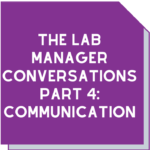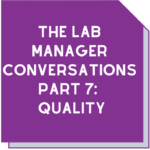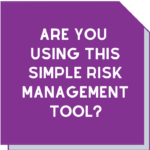Dealing with difficult conversations
 Breakups. Resignations. Bad health news. Job terminations. Performance reviews.
Breakups. Resignations. Bad health news. Job terminations. Performance reviews.
We’ve all been there. We’ve all felt that stomach-clenching, head-pounding, clammy-palmed moment when we needed to have a difficult conversation with someone.
Having to do this in a workplace, particularly if you’re in a supervisory role, can be even more stressful. That additional power dynamic adds another layer of complexity to an already difficult situation.
An organisation should be a network of solid, collaborative, adult relationships. The better those relationships are, the better the company.
But at some point, you’ll need to have one of those conversations. Stay calm. Stay human.
And check through these possible ways of approaching it.
Assumptions and attitude
Are you making assumptions about the other person? Perhaps you feel disrespected by something they said but are you sure that was their intention? Effect may not equal intent.
Check how you’re naming the other person. Do you think of them as your nemesis or your opponent? Reframe this to think of them as a collaborator.
Think about how you approach this mentally and the words you’ll use. Consider alternative words and how you can frame the conversation differently. For example – you’re focussing on constructive development rather than negative performance. You’re offering up alternative solutions, not just saying no.
And don’t assume the other person can see your point of view. Although you may know you’re under pressure as a manager to deliver on promised outcomes, the other person has no idea about your motivations.
Keeping the relationship intact
We’ve all had bad experiences with difficult conversations. Now’s the time to draw on your experiences so that your outcomes are better.
We don’t usually go into these situations with a scorched earth policy. Your goal should be to have an open and frank discussion with the best outcomes possible. This is particularly the case if you’re planning to continue in a working relationship with the person. You’re trying to fix an issue, not destroy a good relationship.
Begin the conversation with a promise to remain respectful. Assuming you’re on good terms with the person, try saying something like: “Our good working relationship is important to me, and this conversation is just a moment. I’d like us to walk out of this room with the same solid relationship we came in with”.
Have a plan (but not a script)
It’s important to be prepared. Having notes and key points is important. You could have some possible responses as prompts if that’s helpful for you. However, having a script is pointless because the other person won’t know their lines!
Keep your language simple, clear, neutral, and respectful.
Schedule the meeting
Don’t spring this on someone. Give them notice and use a meeting room where there’s more privacy.
Let them know what the discussion is about. Be clear about this so they have time to gather their thoughts and prepare. For example:
“I have something to discuss with you that I think will help us work together more effectively.”
“I’d like to discuss the (project/situation) with you but I’d like to get your point of view first.”
“I think we have different perspectives about (project/situation) and I’d like to hear your thinking about this.”
“I’d like to see if we can reach a better understanding about (project/situation). I want to hear your views about this and share mine as well.”
Check your intentions
Before you go into the meeting, be clear on what outcome you’re seeking. Ask yourself if you’re being fair and consistent in applying expectations.
Are you focussed on being right? Just because you don’t agree with what someone has said or done, doesn’t necessarily mean they’re wrong.
Be clear. Explain the problem, how it impacts others and therefore the business and what needs to happen to fix it. You may think your goals are honourable, such as educating a colleague in a particular area. Be sure that this IS your goal and that your language reflects this. This is not the time to sound condescending or accusatory.
Use facts and any documented evidence you have. Stick to the point and don’t go off topic. And focus on what’s important.
Empathy is important
 These conversations can lead to strain in working relationships. That’s why empathy plays such a big part.
These conversations can lead to strain in working relationships. That’s why empathy plays such a big part.
Consider the other person, particularly if delivering bad news, and be compassionate.
And don’t try and make the other person have sympathy for you. Don’t say “I feel really bad about saying this” or “This is really difficult for me”.
Playing the victim card is completely inappropriate here.
Keep it civil
Work with the other person to feel like they have ownership in the solution. Ask them questions about the issue and what factors may have led to it – use your best skills in root cause analysis if needed. Seek their perspective and discuss how to do things differently. See the situation from their perspective.
Be collaborative, not dictatorial.
We wrote about good listening techniques in another article, but this is even more important when the conversation is a difficult one. Focus on what they’re saying. While they are talking, don’t think about what you’re going to say next before they have finished.
During the meeting
Describe exactly what you want to achieve from this discussion. Is it an apology or an explanation? Are you seeking different behaviour? This will help clarify what you’re looking to achieve and give the other person a clear way forward.
Acknowledge what’s being said and don’t interrupt. Acknowledgement can be as simple as nodding and listening. You could also add short responses such as “I can see that’s important to you”. This doesn’t mean you agree or disagree. It just means that you are listening and understanding what they’re saying.
Once they’ve finished expressing their side of the issue, it’s your turn. Is there something they’ve missed? Try to clarify your position but not at the expense of minimising the other person’s.
At the end of the conversation, summarise what’s been said. Agree on any changes you’ve discussed to resolve the problem.
Don’t take it personally
If the person has been less productive or making more mistakes at work, consider this from their perspective. People don’t turn up to work wanting things to go wrong.
Is there something else happening in their life that’s affecting them? Is this out of character for them? Has something changed in the workplace, perhaps a new system or procedure?
Whatever the issue is, try not to make it about you.
If things aren’t going well
Even if you’re trying your best to be positive and constructive, the other person may not be feeling quite so magnanimous.
If it seems like things are going poorly and tensions are rising, try and slow down the pace of the conversation. This will give you a moment to find the right words and hopefully defuse the situation. Listen carefully to what the other person is saying – try saying “Let me think about what you’ve said for a moment”.
If you feel comfortable doing so, encourage them to express how they feel, no matter how emotional they get. Tell them they should feel safe to do this since there’s just the two of you in the room. Saying “I’m really angry about this!” could be the barrier they need to overcome before they can start to resolve an issue.
You can also try taking a break, perhaps to get water or coffee, to give you both some time to step back for a moment and gather thoughts. If that doesn’t feel like the best option at the time, scheduling another meeting the next day could be better.
You may not find a solution today
Not all difficult conversations are going to end well. And its possible that even though you’ve done all of the above, you can’t find a way forward you both agree on. And that’s ok.
There will always be people, circumstances, or behaviours that you can’t talk through. There might not be a solution you can find today, even with the best of intentions.
It’s fine to walk away and agree to disagree in that moment. Schedule a follow up in a day or two. This will give you both some space and time to regroup and consider your options.
Well done!
Nobody is born knowing how to do this. Each time you have a difficult conversation, you’ll get better. No doubt you’ll replay the conversation in your mind and think about what you said and how you said it. You’ll build your skills and confidence and improve your approach.
Starting that conversation is the hardest part.
This article first appeared in our excellent Communications eBook which is available only to our subscribers.
Do you know someone who would benefit from our weekly emails? If so, send them this link – we regularly publish content about labs and lab systems to help people work better and smarter.
And of course, if you’d like to have a discussion about a problem or issue in your business, call Maree (0411 540 709) or Diane (0402 012 781) or you can email info@masmanagementsystems.com.au.
Remember, you don’t have to do this alone!
Download the article Dealing with difficult conversations





